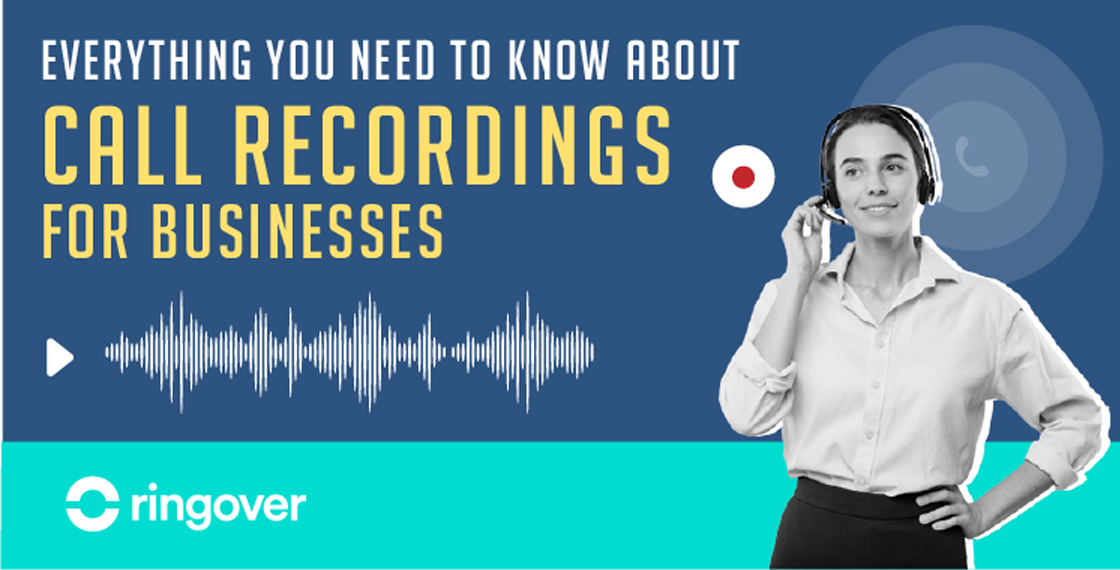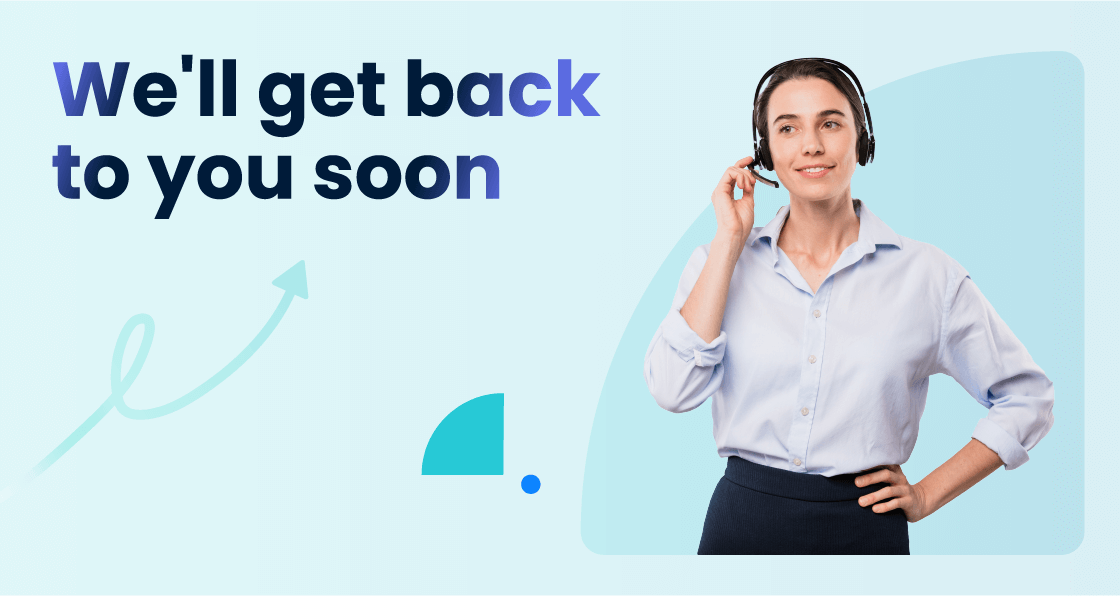Summary
“Hello, this call may be recorded for quality and training purposes.” You have most likely heard this message (or something along these lines) before having your telephone call answered. Maybe call recording and messages like this are something that you would like to set up within your own business. How can you use these recordings, and why should you use them? How long can recordings be stored for? What are the legalities surrounding call recording? Not to worry, we’ll answer all of your questions in this article.
Why record telephone conversations?
One of the many benefits of using a virtual switchboard is that you can benefit from a call recording feature. This is an indispensable tool for improving your agents’ call performances. Call recording has a wide range of uses, including: providing training material for your agents, customer service quality control, and can even prove useful in legal contexts.
Simplify the onboarding process for new employees
Recorded phone conversations, handled by your best agents, can be great material to use for introducing new employees to your company’s call techniques and styles. Listening to how more experienced agents deal with calls can speed up the process for new agents to get to grips with the key elements of the company’s message, and help them remember standard responses for callers’ requests.
Train your teams and boost productivity
Agent training is essential for ensuring an optimal call experience for your customers. It’s an ongoing process, which is particularly important for new arrivals in the team and long-term employees alike. Your customers’ needs are always changing. This is why the responses you give them also need to constantly evolve and adapt. Call recording allows you to provide continuous training for your teams, and share with them new call scenarios, as well as give them examples of how to respond to particular customer requests. Making use of this feature ensures that your training sessions are both engaging and motivating for your teams.
Assess employee performances
Call recording provides managers with a clear and precise vision of individual performance for each member of their team. When used as a supervision tool, this feature allows you to quickly identify areas for improvement, both for individuals and for teams as a whole. This means you can efficiently analyze the responses given by your agents to customers, and the sales techniques used by your telemarketing team. This call data will give you the means to suggest ways to improve their call handling.
Improve the quality of your customer service
As we mentioned above, recording calls allows you to identify areas for improvement when it comes to the quality of your customer service. By listening back to calls, you can spot the customer requests that caused issues or difficulties for your agents, and then use that to adapt and refine your responses, ready to use should the same request come up again.
Provide proof for contracts or transactions
With call recordings, you have an audio paper trail, if you will, that you can refer back to should an issue arise with a caller. You can use them to verify what was said during the call, and ensure that you’re covered in the event of an incident. This way, you have all of the information and elements needed to prove the establishment of a document, or the validation of a transaction.In the event of a customer making a claim against you, and especially if your company’s legal liability is called into question, you’ll be able to produce call recordings, constituting potentially decisive proof of the discussion with the customer.
Which formalities do you need to look out for when recording calls?
Setting up a call recording system can prove to be an indispensable asset for a company, whether it be for customer services, or for the sales teams. And when you’re using VoIP telephony, setting it up couldn’t be simpler. Nevertheless, certain formalities need to be taken into account when using this feature, ensuring compliance with regulations imposed by the General Data Protection Regulation (GDPR) and the CNIL (the French National Commission on Informatics and Liberty). First of all, personnel representative bodies (i.e. unions), must be consulted before the call recording system is installed. Then, given that sensitive and personal information may be communicated during calls, and in order to protect callers, the CNIL has set out certain requirements that must be respected when recording calls. Calls may only be recorded when necessary, and “in proportion with company objectives”. GDPR completes the regulations imposed by the CNIL to ensure optimal data security.
Systematic and permanent call recording
The CNIL prohibits the permanent and systematic recording of calls. Nevertheless, setting up an on-demand call recording system is entirely possible. It is hence important to make sure that your telephony solution includes all of the tools necessary for limiting and defining which calls are recorded. With the Ringover solution, you can set the percentage of calls that you want to record, as well as the users/profiles.
Personal data protection
It is prohibited to record conversations which divulge bank details. Given this, it is strongly advised that you pause call recording when customers are providing personal data (for example, contact details). If your company takes payment over the phone, make sure that this procedure is complain with the PCI DSS which protects cardholder data from fraudulent use.
Combining call recording devices with screen recording.
Call recording combined with screen recording can only be used for training and assessment purposes.
Recording access security
Access to call recordings must only be available to the relevant departments, for the defined objectives. Recorded calls must not be free access, they may only be accessed by the people and departments concerned by the defined objective. For example, if call recording is established for training purposes, only the employees involved in this training may have access to the data. You therefore need to put in place access clearance in order to guarantee access traceability.
Recording conservation limits
It is prohibited to “permanently” conserve call recordings. Other than in cases of exemption, call recordings can only be conserved for a certain period of time; that is 6 months for general call recordings, and any associated analysis documents may be conserved for up to one year.
Upstream caller data
According to this article, whether it’s a case of existing customers, prospective customers, or even company partners, they must all be informed that their call is being recorded. In the same way, you must let them know the reasons for the call being recorded (conversation duration, objective, etc.) from the beginning of the call. It’s worth noting that they have the right to refuse call recording, and can request to hear the recording guidelines at any time.
Caller information: a key element
As we’ve already mentioned, all callers must be informed when their call is recorded. This applies to external calls (customers, prospective customers, etc.) as well as internal calls (employees, etc.), and is essential in avoiding any issues. Therefore, it is imperative that they informed of:
- The existence of a call recording device
- The identity of the person in charge of the recordings
- The objective of the recording
- The identity of the people able to access the recording
- The legalities of the call recording
- How long call recordings are conserved for
- Their right to refuse for legitimate reasons
- Their rights to access and amend recordings
- The possibility of reporting and making a claim to the CNIL
Finally, on top of the other regulations to be respected, you’ll need to register your device with the relevant data processing authority. Furthermore, if you have designated someone to handle your data protection (DPO) within your company, they must be involved with the establishment of the call recording device.
Call recording for regulation compliance
Within certain business sectors, call recording is legally obliged. This is the case for emergency services. The French national police (17) and French paramedics & firefighters (18) therefore systematically and permanently record the calls they receive. Effectively, for the emergency services, having access to phone calls can be vital. Sometimes, the caller cannot be easily understood at first. In such cases, being able to listen back to a call can allow call handlers to identify important contextual elements and therefore respond both quicker and more efficiently.
Call recording made simple with Ringover
With the Ringover solution, you can record telephone communications over the course of up to 6 months. In line with a procedure recently adopted by the CNIL, call recording in the workplace may be carried out in cases deemed necessary, and used for training and assessment purposes. Employers therefore cannot set up a permanent call recording device, and should instead set up an on-demand call recording system. By default, internal communications recording is not activated within Ringover. Calls between your agents and existing or prospective customers may be recorded in line with the regulations in force. The call recording feature may only be configured by administrators via the Dashboard.
Still curious about recording calls?
Contact our experts to help guide you step-by-step at +44 20 3808 5555 or send an email to sales@ringover.com. Start your free trial today.


